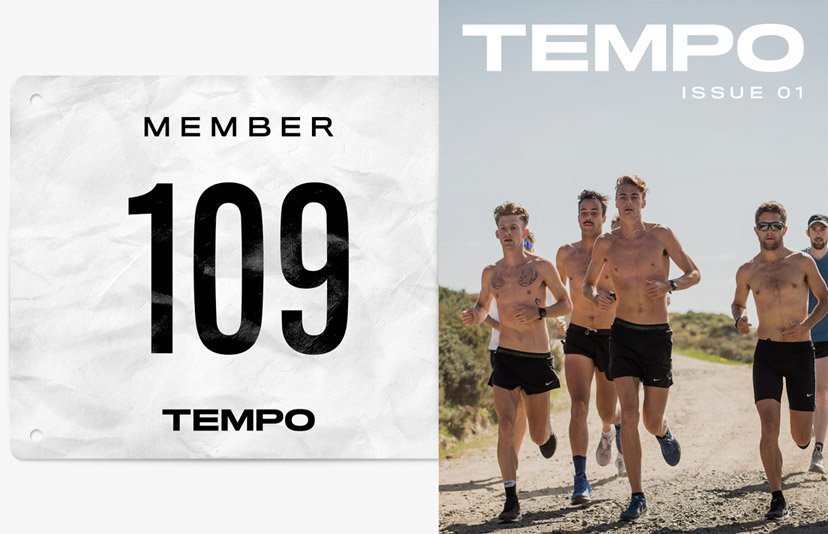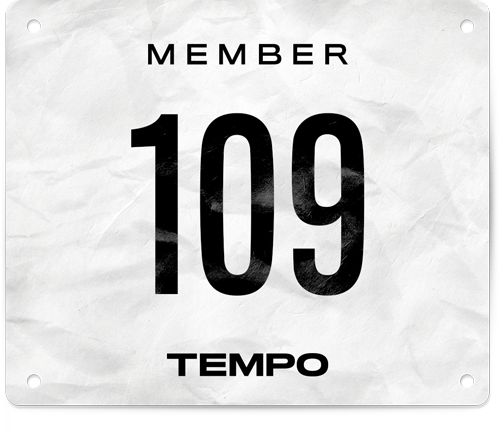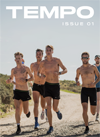Culture
Surf Coast Sundays
Going Sunday Long with Surf Coast Track Club
Editor’s note: This feature is brought to you by New Balance, The Running Company and the new Fresh Foam More X v4. We’re stoked to profile what some are calling the shoe of the year – with the softest Fresh Foam X midsole to date, and with more cushioning stacked higher than ever before, the v4 makes for a plush yet stable ride. New Balance’s range of running shoes is now available at your local The Running Company store.
While photographing a camp for promising young athletes in 2018, I got to hear Steve Moneghetti talk about his life in running. Mona spoke at length about what it took to be great, and he didn’t shy away from the realities that not all promising young athletes achieve their full potential. Far from giving an uplifting, inspiring pep talk to youngsters, Mona hit them with a reality check along the lines of, “If you’re not prepared to give it everything, you’ve got no chance.” He even shared excerpts from his old training diaries, including from the days around his victory in the Tokyo Marathon in 1994; but the thing that I remember most vividly is the way he spoke about the long run.
He referred to the long run as being like church for runners. It’s what you know you’re doing every Sunday – it doesn’t matter what else is going on, or where you happen to be in the world, Sunday is reserved for the Church of the Long Run. To be clear, Mona isn’t the first person to bestow such a label on the long run, and he won’t be the last. But when it comes from one of Australia’s greatest marathoners, it carries a certain weight.
I like to think Mona didn’t just compare the long run to church because it’s something you do every Sunday. Treating the long run the way religious folks treat their faith reinforces its significance and its role as an anchor in training. Regardless of what else you’ve got going for you, you can’t run a marathon without a solid foundation of long runs.
“Nobody wears $300 splitties or takes selfies mid run. Whinging and bitching is not tolerated.”
Julian “Moose” Spence on Surf Coast Track Club
When I think of the long run for great marathoners, I picture them running over hills, mixed terrain, and doing it with a steely reserve, their form never wavering even as they pass the two-hour mark. (I definitely don’t think of some of the long runs my friends and I do along Melbourne’s beachside paths, total elevation 0m).
I think of long runs out at Ferny Creek, where Rob de Castella punctuated his weekly training every Sunday and new national record holders Brett Robinson and Sinead Diver often do their long runs. I also think of a little pocket south-west of Melbourne, in a little town near Freshwater Creek, where the Surf Coast Track Club meets for its Sunday long run.
Surf Coast Track Club (SCTC) was started in mid 2020 by two elite runners, Julian Spence and Ellie Pashley. Spence, or “Moose” as the entire running world knows him, represented Australia in the marathon at the 2019 World Championships in Doha and is also the coach of Ellie Pashley. Most of our readers would know Pashley – one of Australia’s best marathoners, boasting a 2:26:21 PB, she has just returned to running after giving birth to her first child, a girl named Tiggy.
The reason for creating SCTC was simple, according to Moose.
“We wanted to formalise an existing group of runners who used to meet occasionally and give an identity to the group. There was already a crew meeting regularly, but they lacked a bit of structure. Ellie and I both had experience training in high-level environments so thought we could bring some of that experience to the crew down here,” he says.
Despite being a relatively new group, SCTC has developed a reputation – if you see their singlet on a start line there’s a good chance the athlete wearing it is going to be towards the front of the race. Whether it’s Moose himself (marathon PB of 2:14), Matt Gunther (2:21) or many others, there’s a competitiveness to the group that only comes from years of hard work.
Moose’s explanation of the ethos of the group comes as no surprise then.
“We are a performance training group. That doesn’t mean we’re all elite runners, far from it. It means that we bring an environment of high performance to our group sessions.
“I like to think we’re a throwback to the old-school running groups of the past. We’re there to get better at running. Of course we have fun and talk shit like any other group, there’s just an expectation to show up often and work hard during the runs.”
“Nobody wears $300 splitties or takes selfies mid run. Whinging and bitching is not tolerated.”
Thanks to New Balance, I join the group for a Sunday long run in mid-December, a time of year when few Australians are approaching the long run with vigour given the lack of summer marathons on the calendar. Regardless, the run has to get done, and the group set out for a 28km loop of Paraparap and surrounding regions. On their feet? The New Balance X More v4.
The mood is good and, like on all decent long runs, the conversation jumps around freely and often. From chatting about the pros and cons of different domestic chores to gadgets for new parents (that one driven mostly by Ellie) and even the local footy team, everyone’s relaxed and no one appears to be thinking too much about the run they’re on.
I ask Ellie what draws her to this group – as one of Australia’s most accomplished marathoners, and a New Balance sponsored athlete, she could surely train with anyone.
“The biggest thing is the group are all people who want to perform at a high level in running, but people who also want to have fun doing it. Long runs are social and often scenic. There’s a lot of trash talking back and forth, and no one is immune to it. But there’s also pressure to run long, hilly, and keep up. I like that combination. You work hard and get fit, but you also get to run with people whose company you enjoy,” Ellie says.
I’ve been on this run before with the SCTC group, though not for a couple of years. It’s the sort of loop that could make someone fall in love with the purity of running. Red gravel roads give way to quiet bitumen sections that serve only as links to the next section of dirt. In just over two hours of running, we encounter livestock more frequently than cars.
It’s a versatile course, one that becomes a workout spot during marathon training. In fact, the undulation probably served Pashley well in her training for the New York Marathon in 2019, when she finished eighth. I ask Ellie why she heads inland, away from her coastal home at Aireys Inlet, for this loop.
“That is actually a really common route for us during a marathon block. I like that there are a few hills in there for strength, but also flat sections where you can go faster if you need to pending your workout. They’re beautiful, quiet country roads, and mostly gravel.
“Even when the Surf Coast is crazy busy during summer you can go in there and not see anyone!”
Today’s pace is social by this group's standards but, as Ellie mentioned, these roads are a great place to build and gauge fitness. Matt Gunther agrees.
“[This run] for me is the best indicator of how I’m going at that particular stage in my running, whether I’m marathon training or doing something else. If long runs are going well, I’m going well. If long runs are not going well, then I’m struggling,” he says.
The long run doesn't just build fitness, it builds connection. On a surface level, it’s two hours of running shoulder to shoulder with another person, experiencing the same highs and lows as they do, with no phones, no screens (well, except for a watch), and no distractions.
On a deeper level, we come to rely on our long run partners. Not just to be there every Sunday, but to help get us through when we’re struggling. They keep us accountable and honest, and just through being beside us, they help us push ourselves to a new level. Matt Gunther sums it up well.
“I definitely wouldn’t still be running at all if we didn’t have a good group on Sundays. It’s a 45-minute drive for me to get to the long run, but there is never any doubt in whether I make the drive. Just knowing that there’s always a good amount of good people to train with.”
While running is “just” a hobby for most of us, it’s a career for Ellie. We tend to think that people who do this for a career treat their running more like work and focus on the process rather than the enjoyment of a run, but Ellie explains the role the long run plays for her.
“The group long run was the thing I missed most whilst pregnant. It’s like the big end point to your training week every single Sunday, meet the group at 8am, work hard, chat, then go home exhausted but satisfied that you’ve ticked off another week.”
As we get to the end of the run, everyone heads to their cars and grabs a drink. Not five minutes after the run ends, there’s not a trace that anyone was ever there. But they’ll be back next weekend, and the one after, until it’s time to take their place on a marathon start line. And when they do, all those long runs will pay off.


